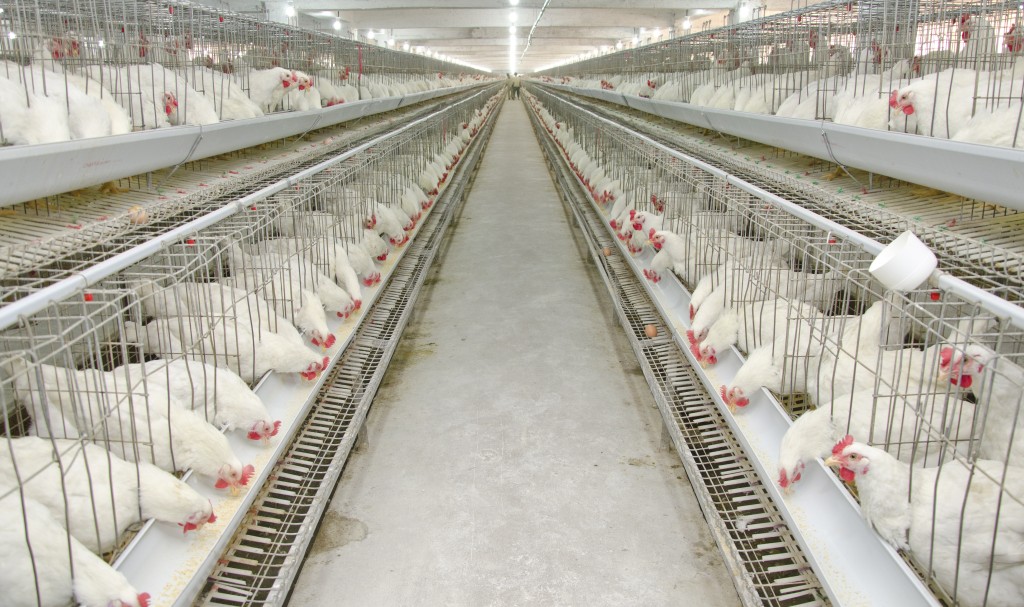AsianScientist (May. 06, 2025) – In Bangladesh, chicken is a common source of protein — but new research from Osaka Metropolitan University reveals that it may be carrying a hidden threat. Researchers from Japan have detected alarming rates of Escherichia albertii, an emerging foodborne pathogen, in retail chicken meat sold in Bangladesh. Their findings show extensive contamination and significant antimicrobial resistance, posing potential risks to public health.
Escherichia alberti is a less known, but probably not less dangerous relative of E. coli. First described in Bangladesh in 2003, this bacterium causes gastrointestinal diseases in humans, such as watery diarrhoea, abdominal pain, vomiting and fever. According to the study, published in the International Journal of Food Microbiology, this is the first report of E. albertii from retail chicken meats in Bangladesh.
“While undercooked chicken has been suspected as a transmission route, much remains unknown about the sources and spread of E. albertii, especially in developing countries,” said Atsushi Hinenoya, an associate professor at Osaka Metropolitan University’s Graduate School of Veterinary Science and lead author of the study.
To track this evasive pathogen back to its original source, the researchers collected samples from 17 poultry retail shops across four districts in Bangladesh between October 2021 and March 2023. They tested chicken meat, internal organs, cloacal swabs, worker hand swabs and processing utensils for contamination and antimicrobial resistance.
Their PCR analysis revealed striking contamination rates — E. albertii was present in 63.9 percent of chicken meat samples and 71.4 percent of cloacal swabs. It was also found on human hands (45.5 percent), processing blades (10 percent) and bleeding cones (13.3 percent). Genetic similarities among isolates from the same shop from meat, cloacal swabs and worker hands suggest cross-contamination during processing.
Previous studies have identified E. albertii as an emerging pathogen in wild animals, birds, poultry, poultry carcass washings and occasionally in humans, but its detection in retail meat, especially at such high rates, is uncommon.
Even more concerning is the pathogen’s resistance to antibiotics.
“Alarmingly, 94.4 percent of E. albertii isolates exhibited resistance to at least one antibiotic, and 50 percent were multidrug-resistant, showing resistance to critical drugs such as tetracycline, ampicillin, gentamicin, kanamycin, nalidixic acid and ciprofloxacin,” Hinenoya said.
Whole genome sequencing further confirmed the presence of antimicrobial resistance genes and virulence factors, which contribute to the pathogen’s ability to cause disease.
The situation is exacerbated by local food practices, said the study. In Bangladesh’s densely packed live poultry markets, hygiene protocols are often minimal. Chickens are usually slaughtered on-site just before sale, often in unsanitized conditions, creating the perfect environment for cross-contamination between birds, meat, tools, and humans.
“There is an urgent need for better hygiene measures in poultry processing, stricter antibiotic regulations, and enhanced monitoring to prevent foodborne infections,” Hinenoya emphasized.
With poultry being a major source of affordable protein in the region, the findings have serious implications not just for Bangladesh, but for global public health. The researchers now plan to investigate human infections, compare bacterial strains from poultry and patients, and map contamination pathways.
“With the global movement of food and people, tackling E. albertii requires international collaboration. We aim to expand molecular epidemiology studies and intervention strategies in Bangladesh to curb its spread,” Hinenoya concluded.
—
Source: Osaka Metropolitan University ; Image: Shutterstock
You can find the article at Occurrence and cross contamination of Escherichia albertii in retail chicken outlets in Bangladesh
Disclaimer: This article does not necessarily reflect the views of AsianScientist or its staff.
Keywords: Bangladesh, Chicken, AMR, Pathogen, E.coli, Japan, E. albertii


